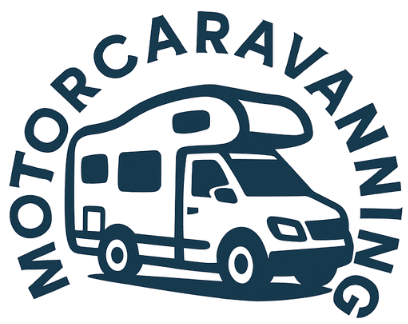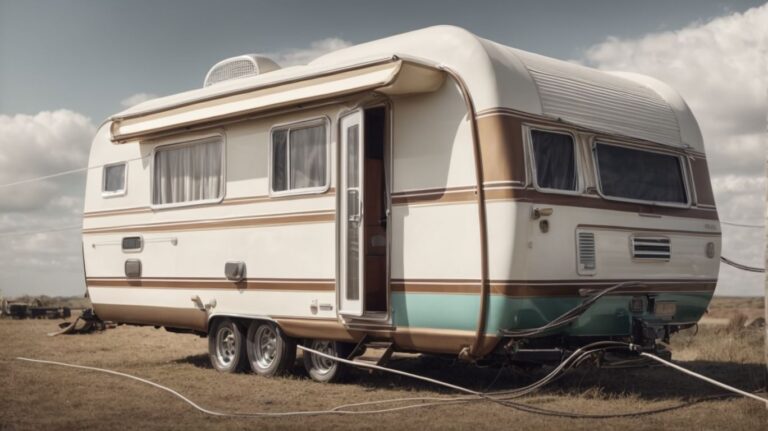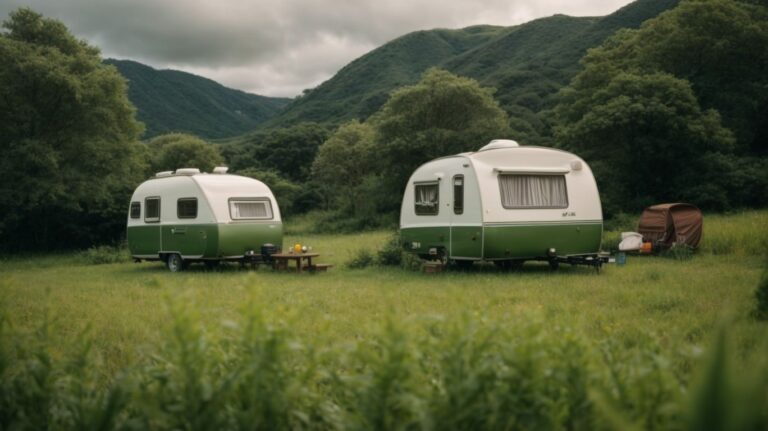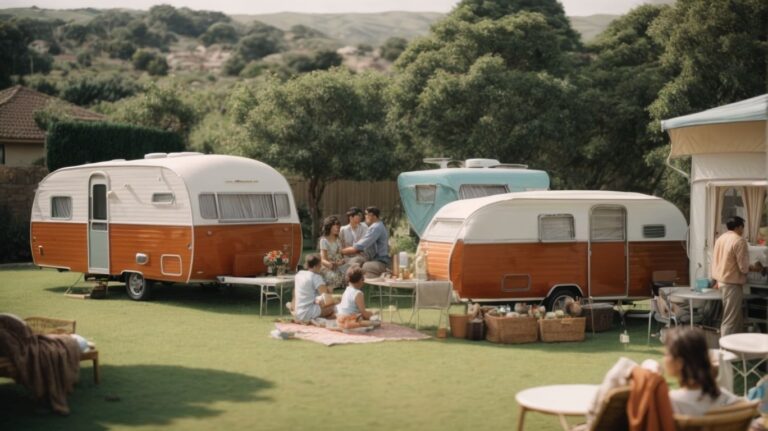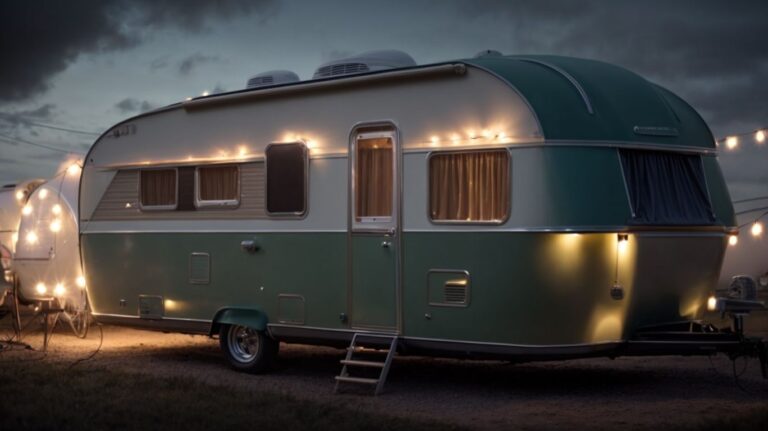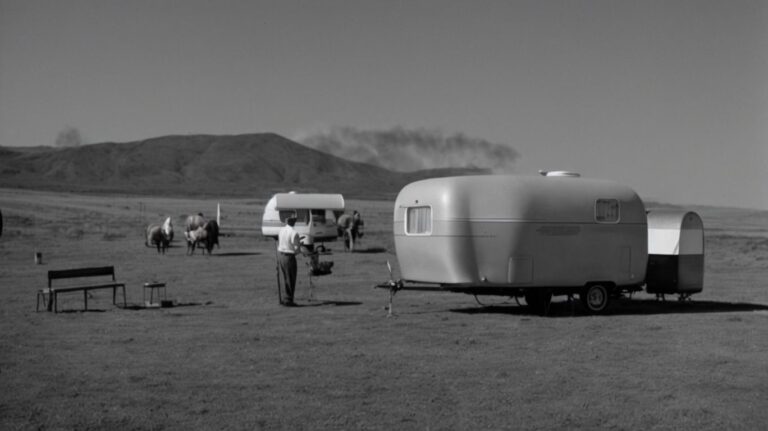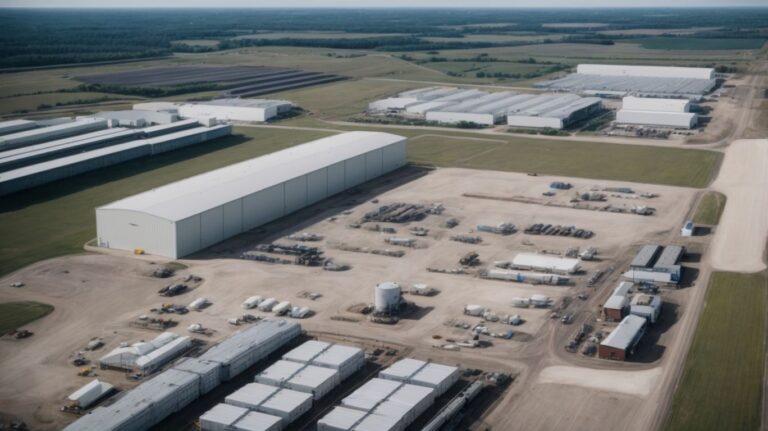Understanding Self-contained Caravans
Have you ever considered traveling in a self-contained caravan?
Discover what a self-contained caravan is and how it differs from a regular caravan. Explore the benefits of choosing a self-contained caravan, such as flexibility, cost savings, and environmental friendliness. Delve into the features that make a self-contained caravan stand out, including water storage systems, waste management systems, and power supplies. Learn about legal requirements and get tips on choosing the right self-contained caravan for your needs. Let’s get started and discover the world of self-contained caravans!
Key Takeaways:
What is a Self-contained Caravan?
A self-contained caravan, also known as an RV, is a mobile vehicle equipped with amenities that allow travelers to live comfortably on the road.
These caravans are designed to be self-sufficient, featuring water tanks for fresh water storage, waste tanks for sewage disposal, and solar panels for generating electricity. With kitchenettes, bathrooms, sleeping areas, and dining spaces, they offer a complete living setup within a compact space. The mobility advantages of these vehicles enable travelers to explore different locations without sacrificing comfort and convenience. Whether parked at a campsite or cruising down the highway, self-contained caravans provide a home-like experience on wheels.
How is a Self-contained Caravan Different from a Regular Caravan?
A self-contained caravan differs from a regular caravan by being a self-sufficient travel trailer with built-in amenities like a toilet, kitchen, and power systems.
These self-contained caravans are popular among travelers seeking a more comfortable and convenient camping experience. The inclusion of toilets eliminates the need to use shared facilities, offering greater privacy and hygiene. The built-in kitchens allow for cooking on the go, saving time and money compared to eating out at restaurants. The integrated power systems provide electricity for lighting, charging devices, and running appliances, enhancing the overall functionality of the caravan.
What are the Benefits of a Self-contained Caravan?
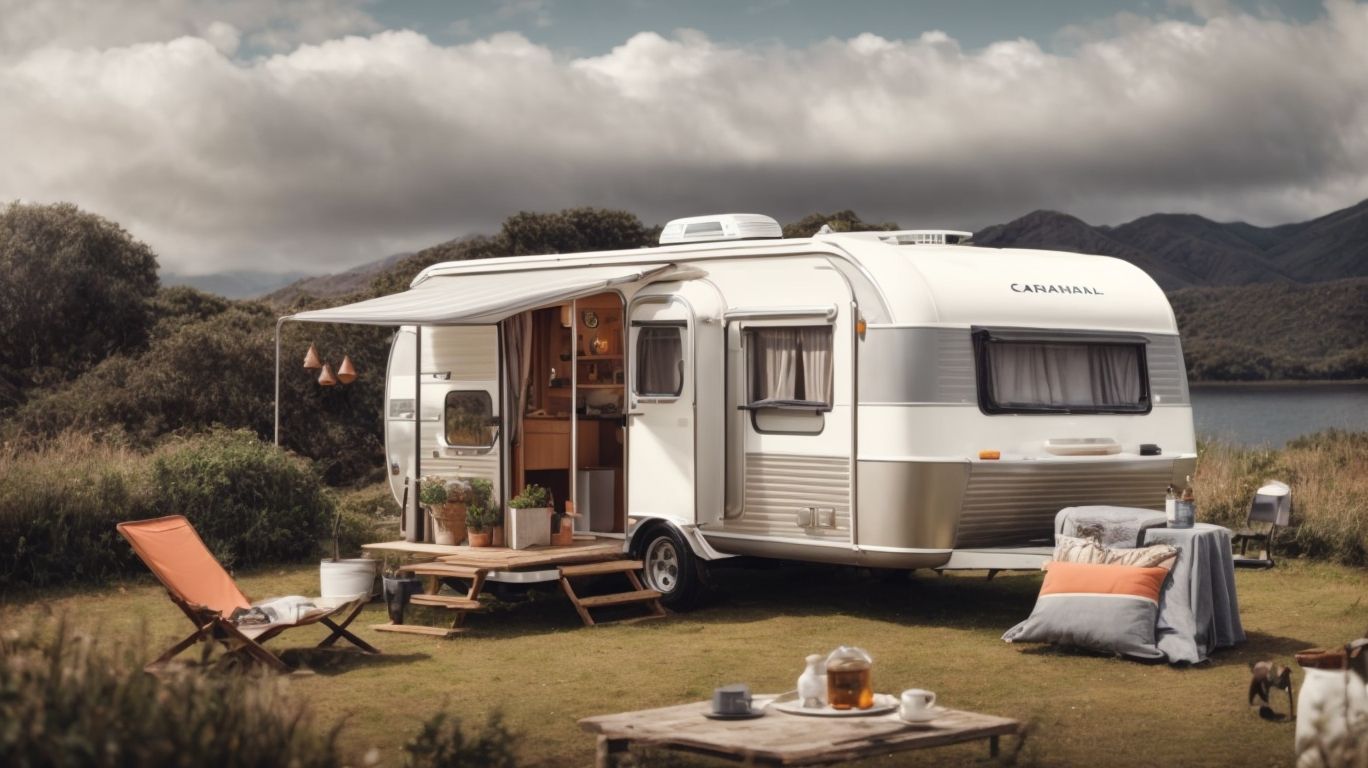
Motion Activated RV Step Lights, 10 LED Battery Operated Motorhome Motion Sensor led Light Strip, Magnetic Night Light Bar for Motorhome Travel,Travel Trailers, Camper (2 Pack)
- 【Infrared Induction Motion Detection】Motion sensor light on the PIR sensor can detect human movement, 10 feet once your approach is detected, the rv step lights will automatically turn on in the dark, in the absence of detected motion or other light sources, 18 seconds after the automatic shutdown, a large degree of power savings and improved durability.
Camco TST MAX RV Toilet Treatment Drop-INs - Control Unwanted Odors & Break Down Waste and Tissue - Safe Septic Tank Treatment - Orange Scent, 30-Pack (41183)
- Toilet Deodorizer With Reactive Odor-Eliminating Technology: Experience a powerful RV odor eliminator that stops RV black tank odors for up to 7 days. Just (1) toilet drop in treats camper toilets with up to a 40-gallon tank.
THANSTAR Collapsible Dish Drying Rack Portable Dinnerware Drainer Organizer for Kitchen RV Campers Travel Trailer Space Saving Kitchen Storage Tray
- 【Food Grade Material】Made from eco-friendly PP+TPR material that is BPA Free and Food-Grade. The flexible material allows the dish strainers for kitchen counter to collapse flat for easy space-saving and storage, making the most of your kitchen countertop.
Camco RhinoFLEX 20-Ft RV Sewer Hose Kit - Features Clear Elbow Fitting w/Removable 4-in-1 Adapter - Connects to 3” Slip or 3”/3.5”/4” NPT Threaded Sewer Connection (39742)
- Superior RV Tank Dumping: Streamline RV holding tank dumping with Camco’s RhinoFLEX 20' Camper Sewer Hose Kit. Built tough & flexible, this all-inclusive RV septic hose system provides simple & effective tank dumping on your camping adventures.
Camco Tastepure RV Water Filter - New & Advanced RV Inline Water Filter with Flexible Hose Protector - GAC & KDF Water Filter - Made in USA - Camping Essentials for Fresh Drinking Water (40043)
- Advanced 6-Step Filtration Technology: Experience the extraordinary power of Hex-Flow Technology & its remarkable 6-step filtration process. Every layer works together to provide you with water that is exceptionally clean.





Credits: Motorcaravanning.Com – Jose Thompson
Self-contained caravans offer a range of advantages, including flexibility for travel, cost savings, environmental friendliness, and enhanced convenience and comfort for campers.
Flexibility and Freedom
The flexibility and freedom of a self-contained caravan enable campers to explore off-the-grid locations, engage in boondocking, and enjoy a sense of independence in their campervan travels.
Self-contained caravans, often referred to as RVs or campervans, provide travelers with the ultimate flexibility to set up camp wherever they desire, away from traditional campsites and amenities. With the ability to store fresh water, generate electricity, and manage waste disposal, campers can truly experience off-the-grid living. This type of camping, known as boondocking, allows adventurers to escape the crowds, immerse themselves in nature, and tailor their journey to their preferences.
Cost Savings
Self-contained caravans provide cost savings through efficient power usage, refrigeration options, and potential for customization and conversion to meet individual needs.
One of the significant benefits of self-contained caravans is their ability to harness RV power effectively, optimizing energy consumption and reducing costs in the long run. By utilizing efficient power systems, these mobile homes can operate various appliances, including refrigerators, with minimal power wastage.
The incorporation of modern refrigeration units in self-contained caravans ensures that perishable goods stay fresh and safe during travels, eliminating the need for frequent restocking and reducing food wastage.
The versatile design of these caravans allows for customization and conversion to tailor the living space according to specific requirements. This flexibility makes them ideal for individuals seeking a personalized travel experience, accommodating unique preferences and needs.
Environmental Friendliness
The environmental friendliness of self-contained caravans is enhanced through the use of solar generators, reducing carbon footprints and promoting sustainable travel practices in RV excursions.
Solar generators have become a popular feature in modern self-contained caravans, utilizing the strength of the sun to provide electricity for various appliances on the go. The use of solar energy not only helps to minimize the environmental impact of RV travel but also reduces reliance on traditional fuel sources.





By incorporating RV solar generators, travelers can significantly decrease their carbon footprint by tapping into renewable energy sources. This shift towards sustainable practices aligns with the growing trend of eco-conscious travel, where individuals seek to minimize their environmental footprint while exploring the great outdoors.
Convenience and Comfort
Self-contained caravans offer unmatched convenience and comfort with amenities like refrigerators for food storage and bathrooms for personal hygiene, ensuring a comfortable camping experience for travelers.
Having an RV refrigerator means you can say goodbye to worrying about food spoilage and stock up on fresh produce and meals for your trip without the constraints of cooler space.
The inclusion of a bathroom in the caravan eliminates the hassle of finding public facilities or dealing with shared bathrooms, offering a sense of privacy and cleanliness that enhances the overall camping experience.
With these essential features onboard, travelers can enjoy the freedom and flexibility of the open road without compromising on comfort or convenience.
What Are the Features of a Self-contained Caravan?
The features of a self-contained caravan include a well-equipped kitchen for cooking, a portable toilet for sanitation, and various amenities to ensure comfort during travel.
With the rise in popularity of RV travel, having a functional RV kitchen in a self-contained caravan is crucial for preparing meals on the go. These kitchens typically come equipped with a stove, refrigerator, sink, and storage space to meet all your cooking needs.
The inclusion of a portable toilet in self-contained caravans provides the convenience of a restroom facility wherever your journey takes you, ensuring hygienic conditions during extended trips.
Plus kitchen and sanitation facilities, these caravans boast added comfort amenities such as cozy sleeping arrangements, climate control systems, and ample storage to enhance the overall travel experience.
Water Storage and Filtration System
Self-contained caravans are equipped with water storage and filtration systems to ensure a fresh water supply for drinking, cooking, and other essential activities during travel.





This RV fresh water system plays a crucial role in providing a safe and reliable source of water while on the road. With the increasing demand for off-grid living and remote travel experiences, having a dependable water supply becomes paramount. These systems typically include tanks that store water from external sources or natural supplies, which is then filtered to eliminate any impurities before consumption. This process ensures that travelers can access clean and potable water for their hydration and culinary needs.
Waste Management System
Self-contained caravans feature waste management systems with holding tanks to store greywater and blackwater efficiently, ensuring proper sanitation and environmental responsibility in camping trips.
Greywater refers to the wastewater produced from sources like sinks and showers, while blackwater encompasses toilet waste. These holding tanks are crucial components of RV waste management, preventing pollution and protecting natural spaces.
Regular maintenance, such as tank flushing and chemical treatments, is essential to prevent odors and ensure efficient operation of these tanks. Proper disposal of RV holding tanks’ content is also vital, following campground regulations or using designated dump stations to avoid environmental contamination.
Responsible waste management practices are integral to preserving the beauty of camping destinations for future generations.
Power Supply
Self-contained caravans are powered by reliable systems, including solar generators, to provide electricity for appliances, lighting, and other power needs during travel, ensuring a sustainable energy source on the road.
Solar generators are particularly popular among RV enthusiasts due to their versatility and environmental benefits. These generators harness energy from the sun through photovoltaic cells, converting sunlight into electricity efficiently. This eco-friendly approach not only reduces carbon footprint but also provides a reliable power source wherever the caravan travels.
Plus solar power, some self-contained caravans may also utilize traditional power sources such as generators or even shore power when available at campsites. This diverse range of power supply mechanisms ensures that travelers have multiple options to stay connected and comfortable while on the road.
Cooking Facilities
Self-contained caravans offer fully equipped cooking facilities, including refrigerators, stoves, and storage options, allowing travelers to prepare meals conveniently during their journeys.
One of the key amenities found in self-contained caravans is the RV refrigerator, which comes in handy for storing perishable items, ensuring a constant supply of fresh ingredients. The compact stoves allow for cooking a variety of meals, from simple snacks to elaborate dishes, providing a homely cooking experience on the road. Ample storage spaces within the caravan ensure that all the necessary cooking utensils and ingredients can be neatly organized, making meal preparation efficient and hassle-free.





Bathroom and Shower
Self-contained caravans feature bathrooms and showers to provide campers with essential hygiene facilities, ensuring comfort and convenience during travel for a seamless camping experience.
These bathroom amenities come equipped with a toilet, sink, and shower, offering the convenience of accessing necessary facilities right in your own RV. The showers in self-contained caravans are typically compact yet functional, allowing travelers to freshen up after a day of outdoor activities.
The bathroom spaces in RVs are designed to optimize the use of space, with clever storage solutions for toiletries and towels. Ensuring cleanliness is also a priority, as many caravans come with sanitary disposal systems for waste, maintaining a hygienic environment throughout your journey.
What Are the Legal Requirements for a Self-contained Caravan?
Legal requirements for self-contained caravans include certifications from organizations like RVIA and compliance with safety standards set by bodies such as NOAH to ensure safe and regulated usage.
Caravans that are self-contained must abide by stringent regulations to guarantee the safety of occupants and the general public. Obtaining certification from RVIA ensures that the caravan meets industry standards for quality, construction, and safety features. Similarly, adherence to NOAH standards is crucial to guarantee that the structural integrity, electrical systems, and gas fittings comply with safety protocols.
Failure to comply with these standards not only poses risks to occupants but may also result in legal repercussions. Therefore, it is imperative for caravan owners to meticulously follow all regulations for safe and lawful operation of their vehicles.
Certification and Compliance
Certification and compliance are essential for self-contained caravans, ensuring that RV standards are met and safety regulations are followed for lawful and secure travels.
Regarding RV certification, it signifies that the vehicle has been thoroughly inspected and meets the necessary requirements for safe and reliable operation. Compliance with regulations also ensures that the caravan is equipped with all the essential features and functionalities to provide a comfortable and secure travel experience.
By adhering to these standards, caravan owners can enjoy peace of mind knowing that their vehicle is up to par with industry regulations, minimizing the risks of accidents or breakdowns during their journeys.
Waste Disposal Regulations
Waste disposal regulations for self-contained caravans include proper management of portable toilets, blackwater disposal, and adherence to camping site guidelines to promote environmental responsibility and cleanliness.





One crucial aspect of waste management for self-contained caravans revolves around the handling of RV portable toilets. These toilets are designed for temporary dwellings such as caravans and motorhomes, offering occupants a convenient sanitation solution. Ensuring the correct maintenance and emptying of these toilets is essential to prevent odors, leakage, and potential environmental contamination.
Regarding blackwater disposal procedures, it is paramount to follow designated disposal points or dump stations. This not only helps in preventing the spread of harmful pathogens but also contributes to preserving the cleanliness of camping sites and water bodies. Compliance with camping site rules plays a significant role in upholding environmental stewardship and minimizing the ecological impact of caravan travel.
How to Choose the Right Self-contained Caravan for You?
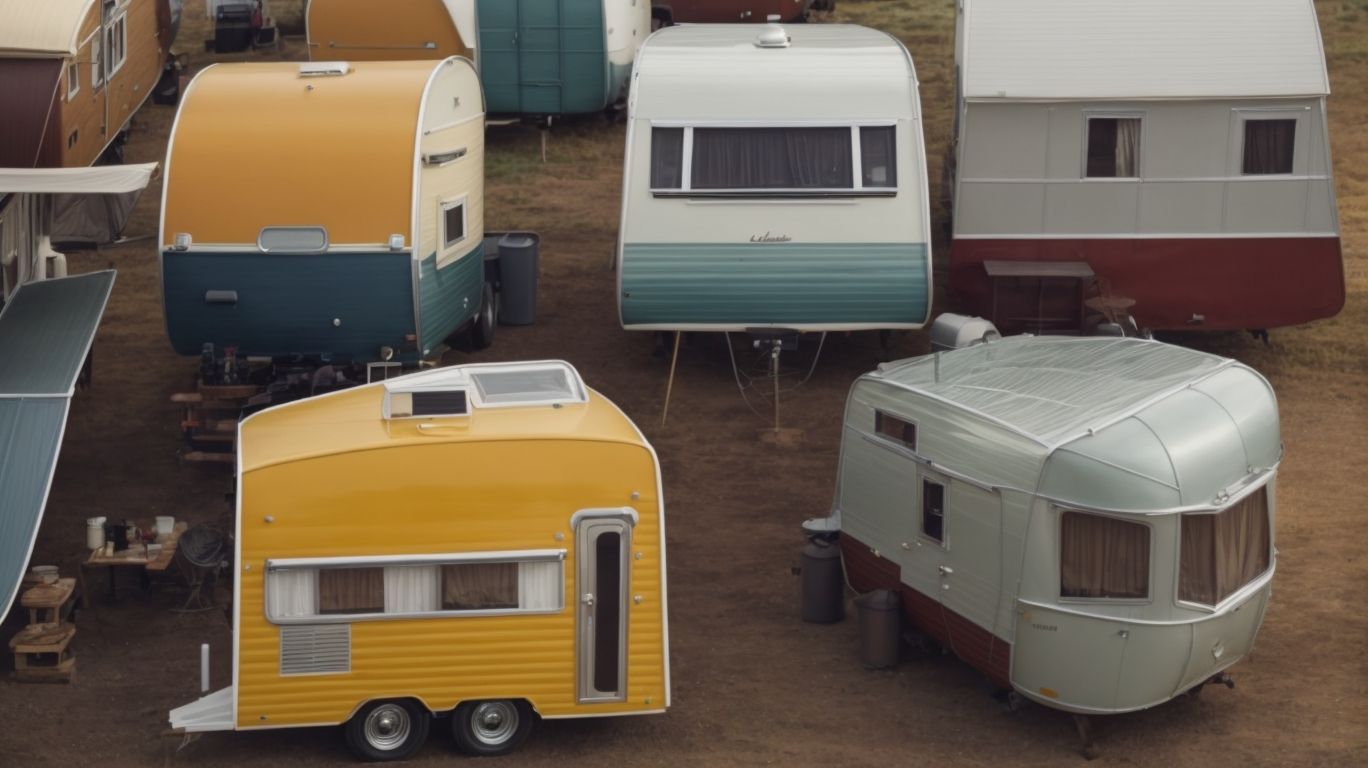
Credits: Motorcaravanning.Com – Brandon Carter
Selecting the ideal self-contained caravan involves considerations such as budget constraints, size requirements, layout preferences, and personal needs to ensure a tailored camper van that suits individual travel styles.
Regarding budget limitations, it’s essential to determine what features and amenities are must-haves versus nice-to-haves. Establishing a clear budget will help narrow down options and prevent overspending. As for size specifications, think about how many people will be traveling and whether you prefer a compact design or a more spacious layout.
Layout preferences can significantly impact comfort during trips. Consider features like separate sleeping quarters, a functional kitchen area, and bathroom facilities. RV camper vans come in various configurations, so choose one that aligns with your daily routines and preferences. Remember to factor in personal requirements, such as storage space for gear, tech amenities, or special customization options.
Budget
Budget considerations play a crucial role in choosing a self-contained caravan, with options ranging from affordable conversions to luxurious RV models, catering to diverse financial constraints and preferences.
When looking at budget-friendly caravan options, opting for a conversion project can be a cost-effective way to create a personalized mobile home. This route allows customization according to individual needs and style preferences. RV conversion opens up a world of possibilities by transforming a basic vehicle into a fully functional living space. On the other end of the spectrum, luxury RV models provide the ultimate comfort and amenities for those willing to invest in a high-end road-tripping experience.





Size and Layout
Considering the size and layout of a self-contained caravan involves factors like the number of berths, storage space, seating arrangements, and amenities like camp chairs to ensure comfort and functionality during travel.
When selecting a self-contained caravan, determining the berth capacities is crucial for accommodating travelers comfortably. Whether you opt for a caravan with a single-berth layout for solo adventures or a multi-berth design for family trips, the berth configuration impacts the overall convenience of the journey.
Ample storage options are essential for organizing belongings efficiently, ranging from wardrobe spaces for clothes to overhead lockers for stowing away essentials. The layout of the caravan, including the positioning of beds and seating areas, contributes to a well-utilized and cozy living space.
Seating layouts play a pivotal role in creating a functional environment, ensuring that both travel and relaxation needs are met. RV camp chairs can further enhance comfort during outdoor activities, offering portable seating solutions that can be easily transported and used at campsites or by the caravan.
Personal Needs and Preferences
Tailoring a self-contained caravan to personal needs involves evaluating preferences for motorhome features, bathroom types, kitchen amenities, and additional comforts to create a customized travel experience that aligns with individual desires.
When considering motorhome specifications, individuals should look at factors like size, weight, and towing capacity, ensuring it suits their travel requirements. RV motorhomes come in various classes, from compact campervans to spacious Class A motorhomes, offering different levels of amenities and living space.
For bathroom variations, choices range from wet bathrooms where everything can get wet to dry bathrooms with separate shower areas, allowing travelers to select based on their preferences for convenience and comfort.
Kitchen amenities play a vital role in the overall experience; options can range from full kitchens with ovens and large refrigerators to more compact setups with basic cooking facilities.
Frequently Asked Questions
What is a self-contained caravan?
A self-contained caravan is a type of recreational vehicle that includes all the necessary living amenities, such as a kitchen, bathroom, and sleeping area, in one compact and portable unit. It is designed to be completely self-sufficient and does not require external connections for water, electricity, or waste disposal.





What are the benefits of owning a self-contained caravan?
Owning a self-contained caravan gives you the freedom and flexibility to travel and explore without having to rely on hotels or other accommodations. You can also save money on accommodation costs and have the comfort of your own home on wheels wherever you go.
Do I need a special license to drive a self-contained caravan?
In most countries, a regular driver’s license is sufficient to drive a self-contained caravan. However, it is always best to check with the local motor vehicle department to ensure you meet all necessary requirements.
What should I consider when purchasing a self-contained caravan?
When buying a self-contained caravan, you should consider your budget, the size and layout of the caravan, the number of people it can accommodate, and the features and amenities that are important to you. You should also ensure that the caravan meets all legal requirements and safety standards for your country.
Can I use a self-contained caravan for full-time living?
Yes, many people choose to live in their self-contained caravan full-time, especially for those who love to travel and have the flexibility to move around. However, it is important to note that there may be local regulations or restrictions on living in a caravan, so it is best to research and plan accordingly.
How do I maintain a self-contained caravan?
To ensure your self-contained caravan is in good working condition, regular maintenance is essential. This includes checking and servicing the water, electricity, and waste systems, as well as keeping the interior and exterior clean and well-maintained. It is also recommended to have a professional inspection done annually.
